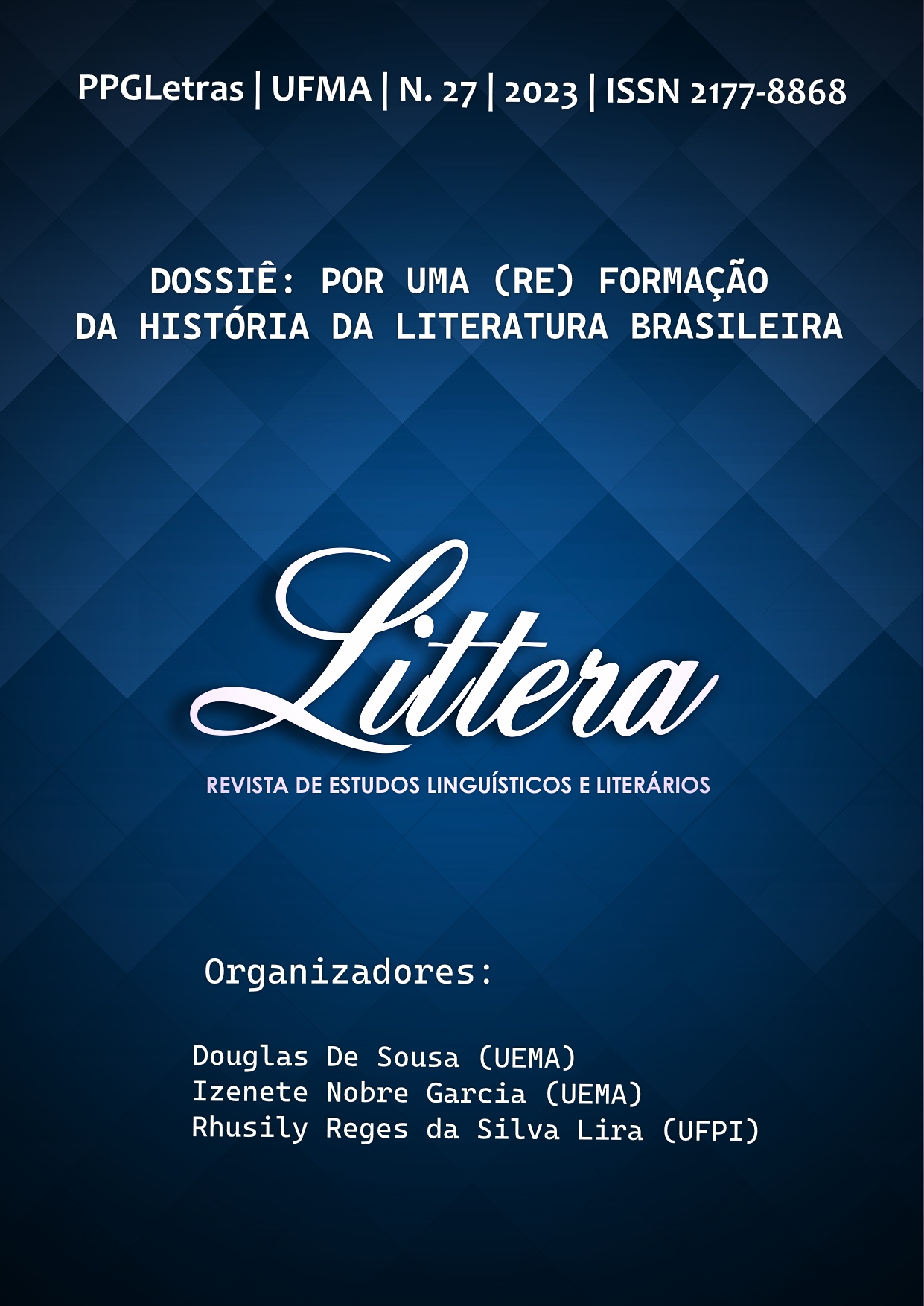LITERATURA E AUTOBIOGRAFIA EM JORGE AMADO
uma análise de Navegação de cabotagem
DOI :
https://doi.org/10.18764/2177-8868v14n27.2023.12Mots-clés :
Navegação de Cabotagem, Jorge Amado, AutobiografiaRésumé
No âmbito literário, os gêneros autobiográfico e biográfico conquistaram notoriedade no decorrer do século XX, despertando interesse em estudiosos da literatura. Nesse contexto, teóricos franceses como Philippe Lejeune foram responsáveis por desenvolverem estudos críticos acerca do gênero, buscando estabelecer a relação intrínseca entre o autor e a obra. Partindo dessa perspectiva, o objetivo deste estudo é refletir e estabelecer apontamentos a respeito da relação entre Jorge Amado e o gênero autobiográfico, tendo como base sua obra Navegação de Cabotagem (1992). Por meio da análise das memórias expostas pelo autor neste livro, pretendemos identificar indícios autobiográficos que possam ser utilizados para aprofundar a compreensão da literatura amadiana. Observou-se que, nesta obra, Jorge Amado busca se afastar da concepção tradicional de escrita de memórias e autobiografias, recusando-se a seguir uma linearidade narrativa e uma ordenação cronológica dos fatos. Dessa forma, Navegação de Cabotagem (1992) apresenta-se como uma retrospectiva da vida do autor, desde sua intimidade até a formulação de seus escritos. Para alcançar esse objetivo, a presente pesquisa irá se concentrar nos campos autobiográfico e literário, tendo como referencial teórico autores como Lejeune (2014), Candido (2000), Sousa (2022) e Salah (2008). Pretendemos, assim, evidenciar algumas particularidades presentes na tradição literária de Jorge Amado, que manifestou em suas obras, especialmente em Navegação de Cabotagem, interessantes histórias sobre si mesmo e sobre seu processo de escrita. Dessa forma, a pesquisa irá se pautar em uma análise minuciosa da obra, identificando elementos autobiográficos e estabelecendo relações entre esses elementos e a literatura produzida por Jorge Amado.
Téléchargements
Références
AMADO, Jorge. "Discurso de posse na Academia Brasileira de Letras". In: Discurso de posse de Jorge Amado. Rio de Janeiro: ABL, 1961.
_________. Navegação de cabotagem. São Paulo: Companhia das Letras, 2012.
_________. O menino grapiúna. Rio de Janeiro: Record, 1982.
_________. Gabriela, Cravo e Canela. Rio de Janeiro, Editora Record, 1995/1958 (1ª ed.)
_________. Jubiabá. Rio de Janeiro, Record, 1987/1935 (1 ed.).
_________. Mar Morto. Círculo do Livro: São Paulo, 1987.
_________. O país do carnaval. Rio de Janeiro, Editora Schmidt, 1931 (1. ed.).
_________. Cacau. São Paulo, Livraria Martins Editora, 1968/1933 (1. ed.).
CANDIDO, Antonio. Literatura e Sociedade. São Paulo: Publifolha, 2000.
_________. Formação da literatura brasileira (momentos decisivos). 6. ed. Belo Horizonte: Itatiaia, 1981.
_________. Poesia, documento e história. In: (Vários autores). Jorge Amado: povo e terra 40 anos de literatura. São Paulo: Martins, 1972.
RAILLARD, Alice. Conversando com Jorge Amado. Trad. Annie Dymetman. São Paulo: Record, 1991.
SALAH, Jacques. A Bahia de Jorge Amado. 1. edição. Fotos de Pierre Verger. Salvador: Fundação Casa de Jorge Amado, 2008. 310p. Broch. Ilustrado.
LEJEUNE, Phillipe. O pacto autobiográfico: de Rousseau à internet. Tr. Jovita Maria Gerhein Noronha e Maria Inês Coimbra Guedes. 2. ed. Belo Horizonte: Editora UFMG, 2014.
Téléchargements
Publié-e
Comment citer
Numéro
Rubrique
Licence

Cette œuvre est sous licence Creative Commons Attribution - Pas d'Utilisation Commerciale - Pas de Modification 4.0 International.
Direitos autorais Littera on line
Este obra está licenciado com uma Licença Creative Commons Atribuição-NãoComercial-SemDerivações 4.0 Internacional.









